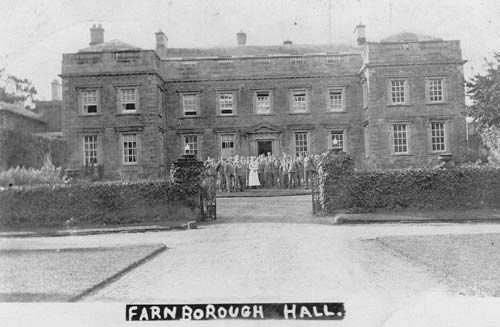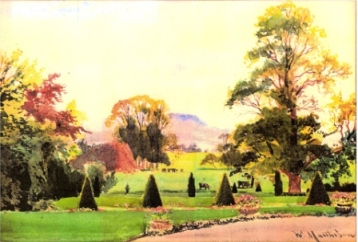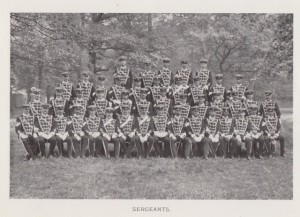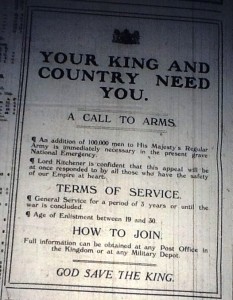At 11.17 on Tuesday night it was announced that a state of war exists between Great Britain and Germany.
Late at night it was reported that the Government had received news of the sinking of a British mine laying vessel by the German navy. The destroyer Pathfinder was chased but evaded her pursuers.
Great Britain delivered an ultimatum to Germany on Tuesday and demanded a reply by midnight. This action followed Germany’s declaration of war in France and Belgium and on receipt of official news during the forenoon of the invasion of Belgian territory.
The Premier in announcing the Governments momentous actions to the House of Commons, stated that Germany was asked for an assurance that her demand upon Belgium would not be proceeded with, and that her neutrality should be respected. An immediate reply was asked for, and a message was received from the German Foreign Secretary to the effect that no Belgian territory would be annexed, but that Germany was compelled to disregard Belgian neutrality owing to fears of a French attack through that country.
News also reached London that the German army were marching into Belgium.
Thereupon the British Government repeated its request for an assurance of Belgian neutrality on the same lines as that given by France, demanding that a satisfactory reply should reach London before midnight.
This grave announcement was received with loud cheers.
Great Britain is prepared for war. The Navy is mobilised and at sea; the Army is being mobilised, men and youths are flocking to the colours, and crowds besiege the recruiting offices.
Admiral Jellico has been appointed to the Supreme Command of the Home Fleet, with Rear- Admiral Madden as his Chief of Staff. Sir John French has been reappointed to his former post as Inspector General of the Forces.
The British Railways have been taken over by the Government for military purposes, and it is notified that the ordinary services may be dislocated for some time.
A scheme for the distribution of food is under the consideration of the Government, and Mr Lloyd George announced details of an important scheme to ensure our merchant ships against war risks, so that foodstuffs for the people and raw materials for our industries may continue to come to our shores.
There has been a division in the Cabinet on the question of British intervention. Lord Morley, Mr John Burns and Mr CP Trevelyan have tendered their resignations to the Prime Minister.
News of Britain’s promise to guard the northern and western coasts of France has been received with enthusiasm in Paris. French papers denounce Germany for:
Committing an outrage not simply against Belgium, France, England and Russia but the civilised world.
The Warwick and Warwickshire Advertiser and Leamington Gazette, Saturday 8th August 1914



